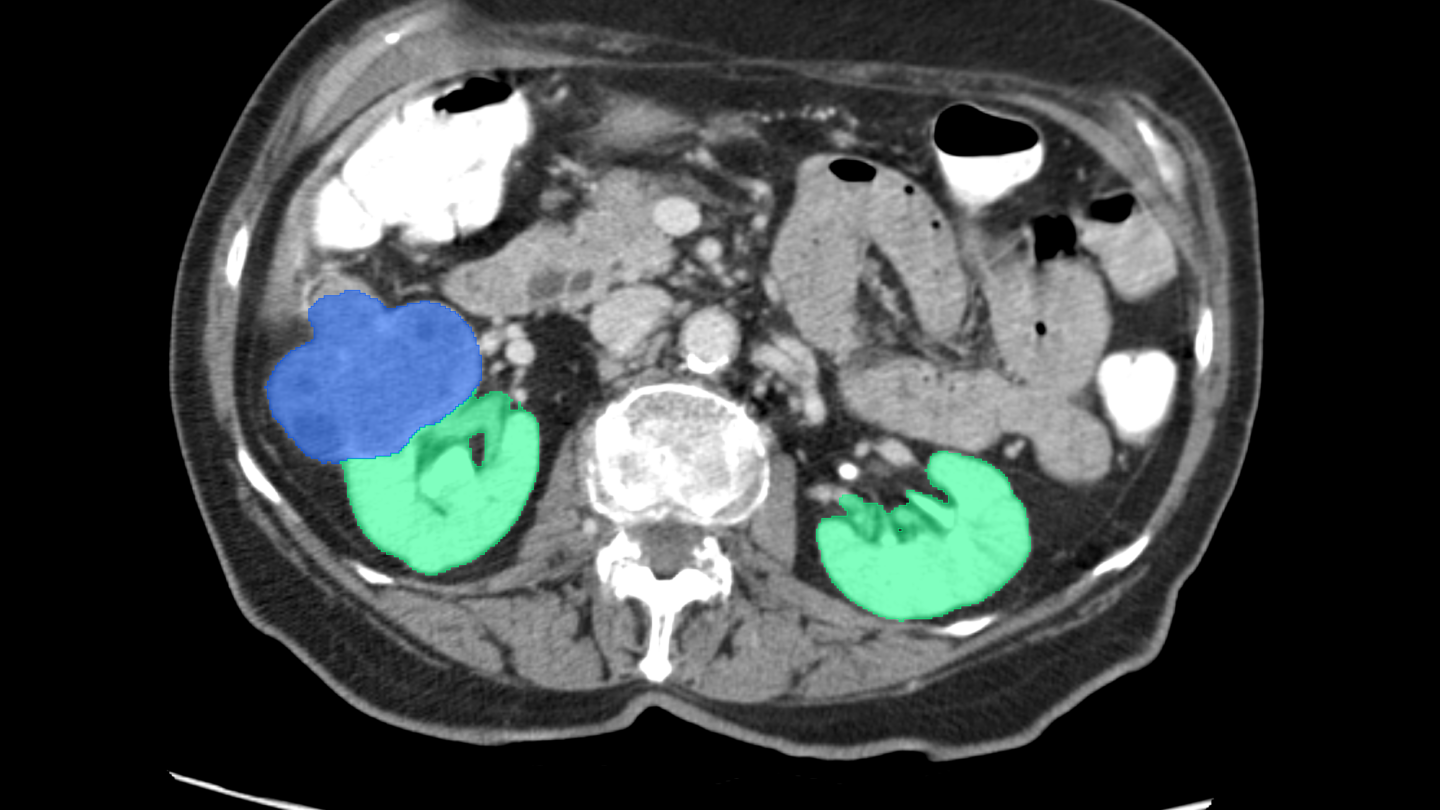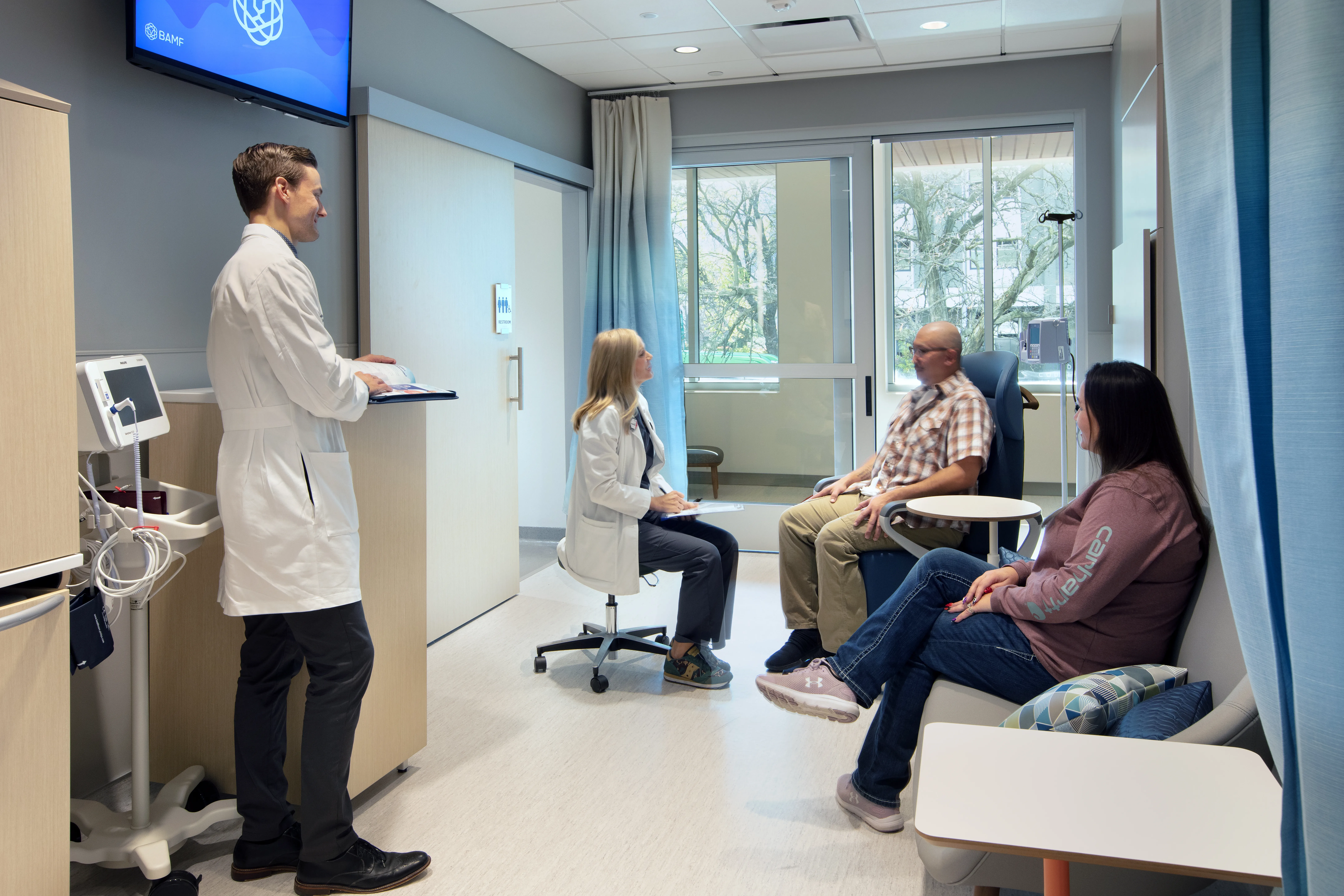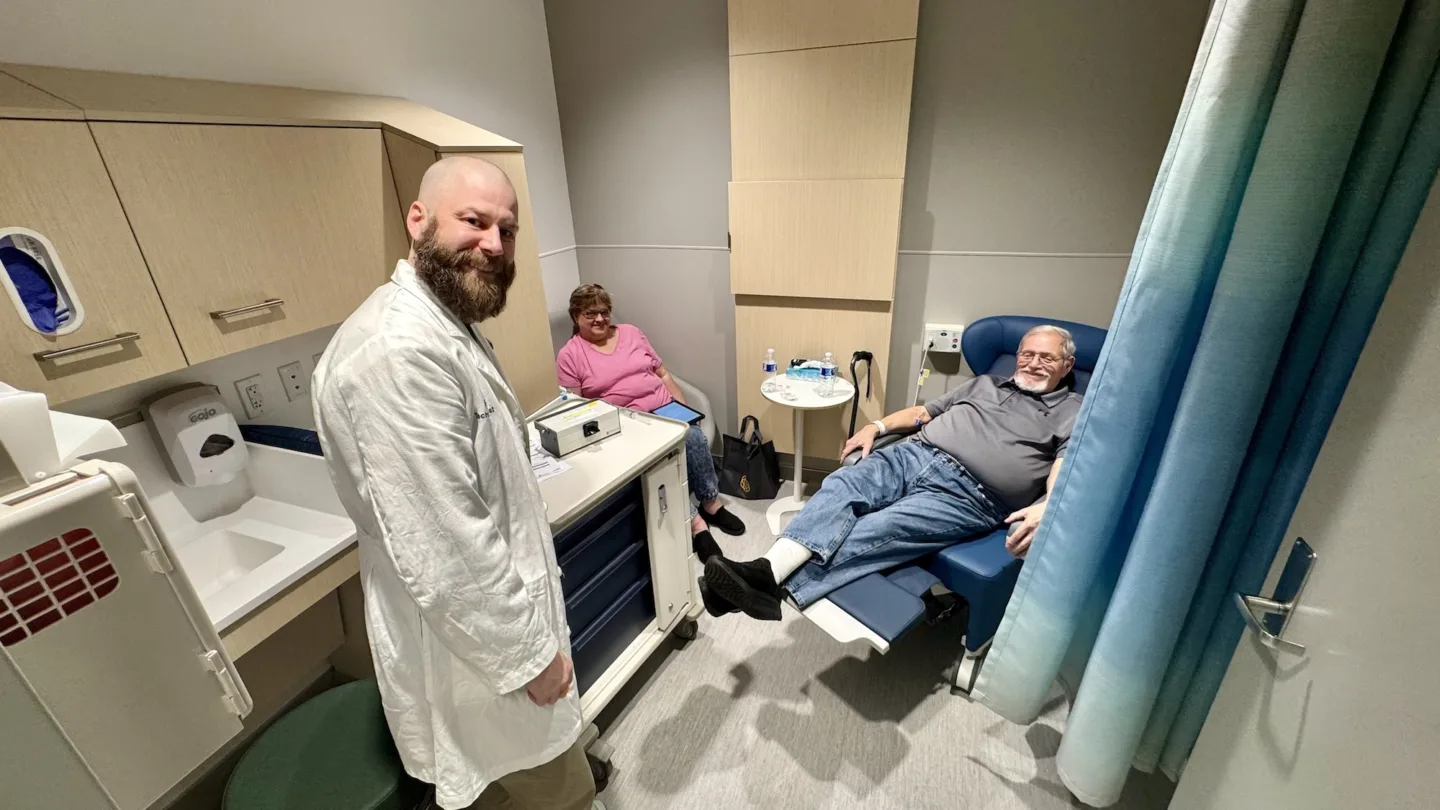
Artificial intelligence has permeated nearly every aspect of our personal and professional lives. From generative tools like ChatGPT to the complex algorithms used by streaming TV services, it’s everywhere! It’s also increasingly being used by healthcare organizations to automate tasks, streamline scheduling, and analyze datasets.
Developing AI algorithms and tools is a core focus at BAMF Health. Our award-winning team is dedicated to constructing automations that improve patient diagnosis and treatment. And now we’re doing it on an even larger scale through a partnership with the National Cancer Institute and the Frederick National Laboratory for Cancer Research, currently operated by Leidos Biomedical Research, Inc.
National Cancer Institute: Artificial Intelligence and Medical Imaging (AIMI)
Over decades, the National Cancer Institute (NCI) has collected tens of thousands of anonymous radiology scans in connection with various cancer research projects. This data is publicly available within the NCI’s Imaging Data Commons (IDC).
Given the depth and breadth of data, the NCI knew these datasets could be useful in developing improved cancer detection tools. In particular, the organization wanted a partner to develop AI models to rapidly analyze scans and correctly identify cancer. That’s where we come in! BAMF Health was chosen as one of the NCI’s AI partners, and the AIMI project kicked off in June 2023.
We tackled the project in two parts. In part one, we analyzed approximately 3,000 lung, liver, and prostate cancer PET/CT scans and developed AI algorithms to distinguish tumors from surrounding healthy tissue. Our team then partnered with radiologists to continually adjust the AI models to improve accuracy.
In part two, we followed a similar process for breast and brain cancer images. In all, our team of seven created 11 AI algorithms and analyzed more than 6,000 scans. Our results were compiled on a public dashboard and are now used by cancer experts across the globe.
Project Impact
This project aligns perfectly with our mission to use AI technology and innovation to improve patient care. The algorithms our team developed are crucial in detecting cancer earlier and more accurately.
“Partnering with the NCI on this project is a tremendous honor,” said Jeff Van Oss, lead research engineer at BAMF Health. “Our work with NCI paves the way for human expertise and machine learning to become a powerful force for healing and progress.”
AI can detect anomalies with infinitely better accuracy than the human eye. Improved detection can lead to more precise treatment for patients and ultimately better outcomes. And that’s what we’re all about.
BAMF was invited to present our findings at the MICCAI Society 2023 International Conference. Research of this caliber is typically conducted by large academic institutions and multi-billion-dollar corporations, but BAMF Health is blazing the trail and putting Grand Rapids on the .
“This is another example of how BAMF Health is contributing to the future of molecular imaging,” Dr. Stephen Moore, PhD, VP of artificial intelligence at BAMF. “It’s our goal to combine these models with expanded patient data to make even better and more personalized treatment decisions in the future.”


